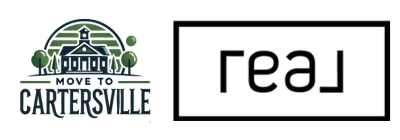Navigating the mortgage landscape in Georgia can be challenging for homebuyers. Many often wonder whether to work with a mortgage broker or go directly to a lender.
The right choice depends on personal needs, as mortgage brokers can offer a variety of options and better rates, while direct lenders provide a more straightforward process.
Understanding the differences between a mortgage broker and a direct lender is essential for making an informed decision. Brokers act as intermediaries, helping borrowers find suitable lenders, while direct lenders handle the loan process themselves.
Each option has its advantages and potential drawbacks for different situations.
For those considering a mortgage in Georgia, examining the local regulations and market trends can provide valuable insights. By knowing the unique aspects of the state’s mortgage scene, individuals can make a choice that best fits their financial goals and circumstances.
Key Takeaways
- Mortgage brokers offer a variety of options for better loan rates.
- Direct lenders provide a more straightforward loan application process.
- Understanding Georgia’s regulations can guide homebuyers in making informed decisions.
Understanding Mortgage Brokers
Mortgage brokers play a key role in helping borrowers find the right mortgage. They act as intermediaries between borrowers and lenders, providing valuable insights and connections. This section explains their roles, benefits, and considerations for choosing a mortgage broker.
Role and Function of Mortgage Brokers
A mortgage broker serves as a link between borrowers and various lenders. They gather financial information from clients and assess their needs. Once they have this information, they shop around to find suitable loan options from different lenders.
Mortgage brokers do not lend money; instead, they facilitate the process. They help clients fill out applications and provide guidance on necessary documents. This can make the process less stressful for borrowers, as brokers handle much of the legwork required to secure a mortgage.
Benefits of Working with a Mortgage Broker
Working with a mortgage broker offers several advantages. First, they have access to a wide range of lenders, which can lead to more competitive rates and terms. This means borrowers may save money over the life of their loan.
Brokers also provide expertise in navigating the mortgage process. They can explain various loan products, interest rates, and repayment options. This guidance can improve a borrower’s understanding and comfort level with the decisions they are making.
Additionally, brokers can streamline the approval process. They know what documentation is needed and can often expedite the application. This can be especially beneficial for first-time homebuyers who may feel overwhelmed.
Potential Limitations and Considerations
While there are benefits, there are also potential limitations to consider. Mortgage brokers may charge fees for their services. These fees can vary, so it is essential for borrowers to understand the costs upfront.
Brokers may have relationships with specific lenders. This can sometimes sway their recommendations towards those lenders, rather than presenting all available options. Borrowers should be aware of this possibility and feel free to ask questions to ensure their best interests are prioritized.
Finally, not all brokers are the same. It’s important for borrowers to research and choose a reputable broker with a good track record to avoid potential pitfalls.
Understanding Direct Lenders
Direct lenders are institutions that provide loans directly to borrowers without intermediaries. They can streamline the mortgage process and often offer specific advantages and disadvantages that potential homebuyers should consider.
Definition and Types of Direct Lenders
Direct lenders are financial institutions that process, approve, and fund mortgage loans directly. They can be banks, credit unions, or specialized mortgage companies. Each type serves different needs.
-
Banks: Traditional banks offer a wide range of financial products, including various mortgage options. They often have established reputations and financial stability.
-
Credit Unions: These member-owned institutions may offer more personalized service and competitive rates. They often focus on the local community and member needs.
-
Mortgage Companies: These firms specialize in home loans and might offer a wider range of mortgage products, but they may vary in reputation.
Advantages of Choosing a Direct Lender
Using a direct lender can provide several benefits for borrowers.
-
Streamlined Process: Since direct lenders control the entire loan process, it can lead to faster approvals and clear communication.
-
Transparent Terms: Direct lenders often provide straightforward loan terms without hidden fees, making it easier for borrowers to understand what they are signing up for.
-
Potentially Better Rates: Some direct lenders may offer lower interest rates compared to brokers, as they can manage their costs more efficiently.
-
Familiarity with Programs: Direct lenders might offer specialized loan programs that suit unique financial situations, such as first-time homebuyer assistance.
Disadvantages to Be Aware Of
While direct lenders offer many benefits, there are also potential downsides.
-
Limited Options: Borrowers may have fewer choices since these lenders only offer their own products, which can limit flexibility.
-
Less Personalization: Larger banks or lenders may provide a more impersonal experience, lacking the personalized service that some borrowers prefer.
-
Approval Criteria: Direct lenders may have stricter lending standards, which could affect eligibility for some potential borrowers.
-
Higher Closing Costs: Some direct lenders might charge higher closing costs, impacting the overall expense of securing a mortgage.
Homebuyers should weigh these factors when deciding whether to work with a direct lender.
Comparative Analysis in the Georgian Context
When choosing between a mortgage broker and a direct lender in Georgia, several key aspects come into play. These include interest rates and fees, loan processing timeframes, and customer service perspectives. A clear understanding of these factors can help borrowers make informed decisions.
Interest Rates and Fees
In Georgia, mortgage brokers often have access to wholesale rates due to their relationships with multiple lenders. This can lead to lower interest rates and fees for borrowers. For instance, brokers might charge a fee averaging 1% to 2% of the loan amount, which can be negotiated depending on the lender. Direct lenders, on the other hand, may offer competitive rates but often lack the variety that brokers provide. Borrowers need to compare the total costs, including origination fees and closing costs, to determine the best financial path.
Loan Processing Timeframes
Loan processing times can vary significantly between mortgage brokers and direct lenders in Georgia. Brokers may take longer to secure loans since they must navigate multiple lenders to find the best deal. While they can streamline the process by presenting various options, this can also introduce delays. Direct lenders tend to have more control over the process, often allowing them to approve loans more quickly. Borrowers should ask about average processing times and any potential delays when comparing options.
Customer Service Perspectives
Customer service plays a crucial role in the mortgage process. Mortgage brokers often provide personalized service, guiding clients through each step and answering questions. They typically offer tailored advice based on a client’s unique financial situation. In contrast, direct lenders might have less personalized service. However, many direct lenders have streamlined processes that enable borrowers to access information quickly. It is vital for borrowers to evaluate their comfort with each approach when deciding on a mortgage option.
The Impact of Georgia State Regulations
Georgia state regulations play a crucial role in shaping the mortgage industry. These regulations establish clear guidelines for licensing, ensure borrower protections, and outline compliance for all mortgage-related activities. Understanding these elements is vital for anyone navigating the mortgage landscape in Georgia.
Licensing Requirements
In Georgia, both mortgage brokers and direct lenders must meet specific licensing requirements. They must be licensed by the Georgia Department of Banking and Finance. The application process includes submitting detailed information about business operations and disclosing any criminal history.
Licensees also have to complete continuing education courses annually. This ensures that they stay current with the latest regulations and practices in the industry. Failure to maintain a valid license can result in penalties, including fines and a suspension or revocation of the license.
State-Specific Laws and Protections
Georgia has laws that protect consumers in mortgage transactions. The Georgia Fair Lending Act outlines rules against predatory lending practices. It aims to prevent lenders from exploiting borrowers through unfair loan terms.
Additionally, the Georgia Residential Mortgage Act regulates mortgage activities to ensure transparency. This includes clear disclosures about loan terms, fees, and conditions. Borrowers must receive relevant information before closing a mortgage loan, allowing them to make informed decisions.
Compliance and Enforcement
Compliance with state regulations is essential for mortgage brokers and lenders. The Georgia Department of Banking and Finance actively monitors adherence to laws. Regular audits can occur to ensure that companies follow legal requirements.
Violations can lead to heavy fines, license suspension, or revocation. Entities must keep detailed records and be prepared for inspections. This scrutiny emphasizes the importance of strict compliance within the mortgage industry. Borrowers can feel more secure knowing that there are measures in place to uphold their rights.
Choosing the Right Option for You
Making the decision between a mortgage broker and a direct lender involves careful consideration of several factors. A self-assessment of one’s financial position, long-term financial goals, and the role of credit scores can guide this important choice.
Self-Assessment of Financial Position
Before choosing a mortgage option, it is crucial for a borrower to assess their financial health. This includes evaluating income, existing debts, and monthly expenses.
Borrowers should ask themselves questions like:
- What is my income level?
- Do I have a stable job?
- What are my current debts?
This self-assessment will help them understand how much they can afford to borrow. A mortgage broker can be useful for those who want to compare multiple loans. Conversely, a direct lender may suit someone with clear financial stability looking for quicker approvals.
Long-Term Financial Goals
Understanding long-term financial goals is essential when deciding between a broker or a lender. They should consider their plans for homeownership.
Specific goals may include:
- Buying a larger home in 5 years
- Paying off the mortgage early
- Investment opportunities
These objectives can affect the loan terms they should pursue. For example, someone looking to move in a few years may benefit from lower closing costs that a broker can help negotiate. Those aiming for long-term stability might choose a direct lender for possibly lower interest rates.
The Role of Credit Scores in Decision Making
Credit scores play a significant role in determining loan options. A higher score generally opens the door to better rates and terms.
Borrowers should check their credit reports for:
- Errors
- Outstanding debts
- Recent credit inquiries
A mortgage broker may provide access to more lenders willing to work with various credit profiles. On the other hand, direct lenders may have strict requirements. Understanding one’s credit position will enable borrowers to make informed choices and improve their chances of loan approval.
Case Studies: Successes and Challenges in Georgia
In Georgia, borrowers often navigate a mix of experiences when choosing between a mortgage broker and a direct lender. The following case studies highlight successful transactions and notable challenges faced by both approaches.
Successful Mortgage Brokerage Tales
Many homebuyers in Georgia have benefited from the expertise of mortgage brokers. For instance, a young couple sought a first-time homebuyer loan with specific criteria. The broker quickly identified several lenders, allowing them to compare rates and terms effectively. This couple secured a competitive interest rate of 3.5%, saving them money over the life of their loan.
Brokers often save time by streamlining the process. They handle paperwork and communicate with lenders, which is valuable for busy clients. Their ability to shop multiple lenders helps clients find options that suit their financial needs, showcasing the broker’s role as an essential ally in the homebuying process.
Direct Lender Triumphs
Direct lenders also provide significant advantages, particularly in terms of speed and simplicity. For one Georgia client, a local bank offered a streamlined process for a conventional loan. The lender approved the application in just two weeks, allowing the client to close quickly on their new home.
Direct lenders often retain control over the loan process, which can mean fewer delays. This local presence allows for face-to-face consultations, enhancing trust. Many borrowers appreciate the straightforward nature of working directly with a lender, especially if they already have a banking relationship.
Challenges Faced by Borrowers
Despite the benefits, both mortgage brokers and direct lenders present challenges. Some borrowers working with brokers may experience delays. For example, a buyer in Atlanta found that the broker’s extensive list of lenders made decision-making overwhelming, prolonging the application process.
On the other hand, direct lenders may not offer the same variety of products. A buyer looking for a unique loan type might find limited options. These potential roadblocks emphasize the importance of understanding personal needs and preferences before choosing the right path for securing a mortgage in Georgia.
Key Considerations for First-Time Home Buyers
First-time home buyers in Georgia face some important choices. Understanding the differences between a mortgage broker and a direct lender can help them make informed decisions.
1. Mortgage Options
Mortgage brokers offer access to a wider range of mortgage products. They can help match buyers with lenders suited to their needs, such as those for first-time home buyers or those requiring special financing.
2. Fees and Costs
It is essential to know the costs involved. Brokers may charge a mortgage broker fee, generally between 1% to 2% of the loan amount. For example, on a $400,000 loan, the fee could be as high as $8,000.
3. Speed of Process
First-time buyers should consider how quickly they want their loan secured. Using a direct lender can sometimes result in a faster approval process.
4. Expert Guidance
Choosing a mortgage broker can provide valuable expertise. They can guide buyers through complex steps and make the process smoother, especially for those new to home buying.
5. Relationship with Lenders
Brokers often have established relationships with various lenders. This can sometimes lead to better loan terms or rates compared to working with a lender directly.
Being aware of these factors can help first-time home buyers in Georgia choose the best route for their mortgage needs.
Mortgage Industry Trends in Georgia
The mortgage industry in Georgia is experiencing notable changes. These trends are shaping how borrowers and lenders interact.
-
Rise of Nonbank Lenders
Nonbank lenders are gaining more market share. Companies like Pennymac and Rocket Mortgage are leading in home purchases. This shift offers borrowers more options beyond traditional banks. -
Technology and Data Integration
Technology is streamlining the mortgage process. Third-party providers are helping lenders and brokers use data more effectively. This trend is making it quicker for borrowers to secure loans. -
Strong Demand for Home Purchases
In recent years, home purchase loans have been a significant focus. In Georgia, almost 60% of Ameris Bank’s mortgage business comes from home purchases. This indicates a solid demand for housing in the state. -
Competitive Rates
Borrowers are benefiting from competitive interest rates. Mortgage brokers often find better rates than direct lenders by comparing multiple lenders. This can lead to substantial savings for homebuyers. -
Shift in Refinancing Activity
After a peak in 2021, refinancing has declined. Many borrowers are now prioritizing home purchases over refinancing their existing loans. This shift impacts lenders’ business strategies as well.
Understanding these trends helps borrowers make informed decisions about their mortgage options in Georgia.
Conclusion
Choosing between a mortgage broker and a direct lender in Georgia has important implications for borrowers. Each option offers distinct advantages that can affect the borrowing experience.
Mortgage Brokers:
- Work with multiple lenders.
- Help find better rates and terms.
- Provide a range of loan options.
Direct Lenders:
- Offer direct communication.
- May provide faster approval processes.
- Have control over the loan approval process.
Borrowers should consider their financial situation and preferences when making a choice. A mortgage broker can save time and effort by comparing various lenders. Direct lenders might suit those who prefer a straightforward process.
Ultimately, understanding the differences aids borrowers in making an informed decision. Each route can lead to favorable outcomes depending on individual needs and goals.
Considering buying a home in Cartersville, Georgia?
Take the first step today! Book a call with our real estate team today!










